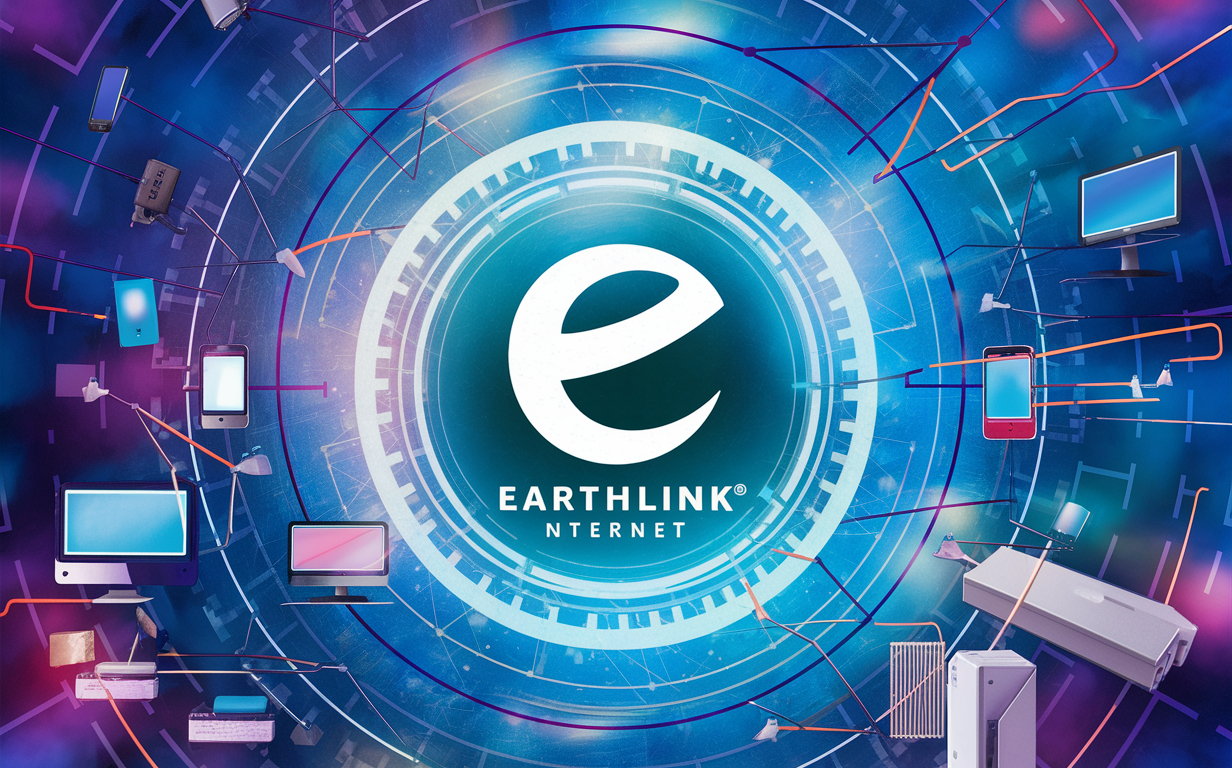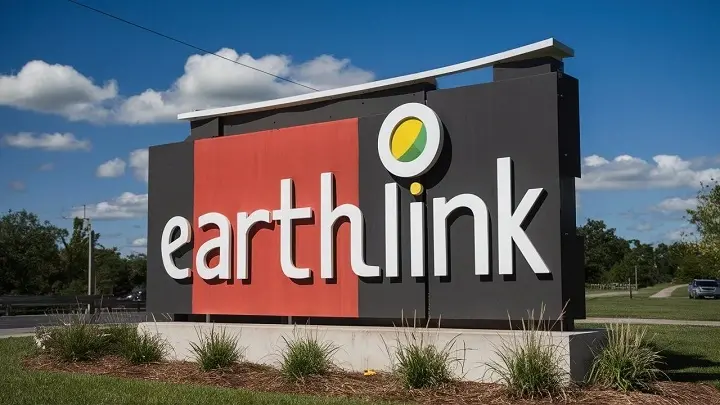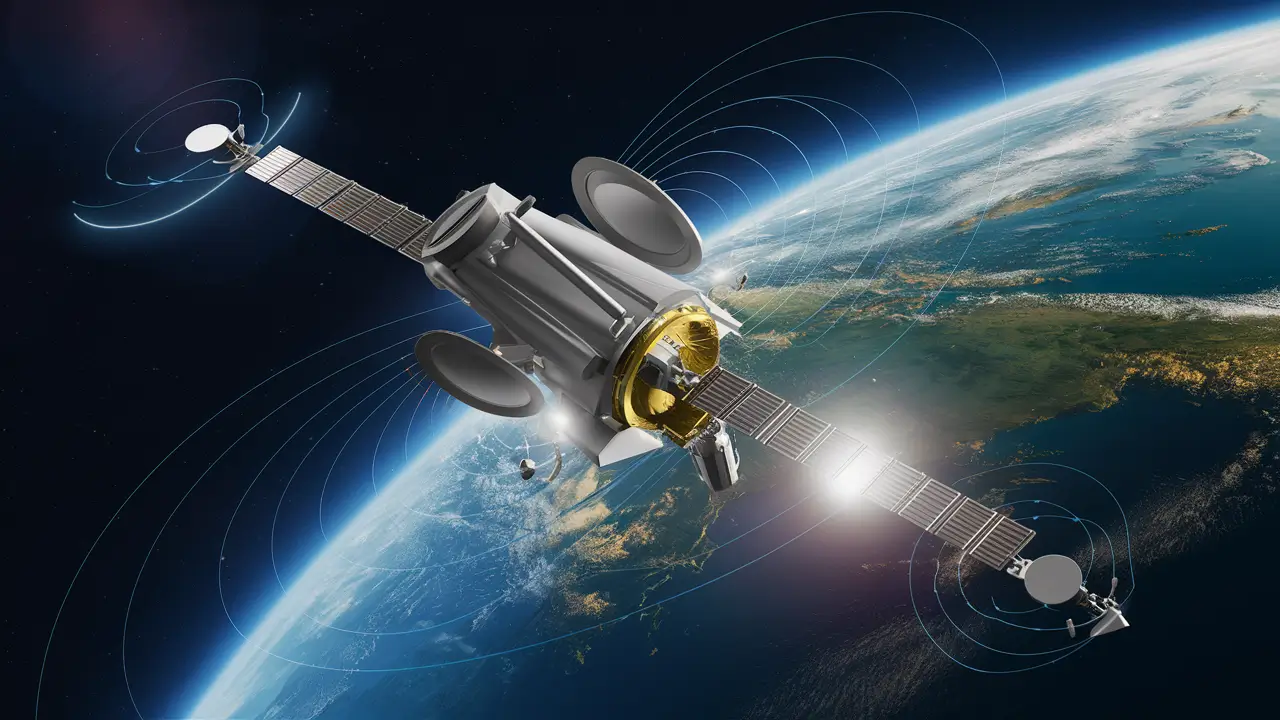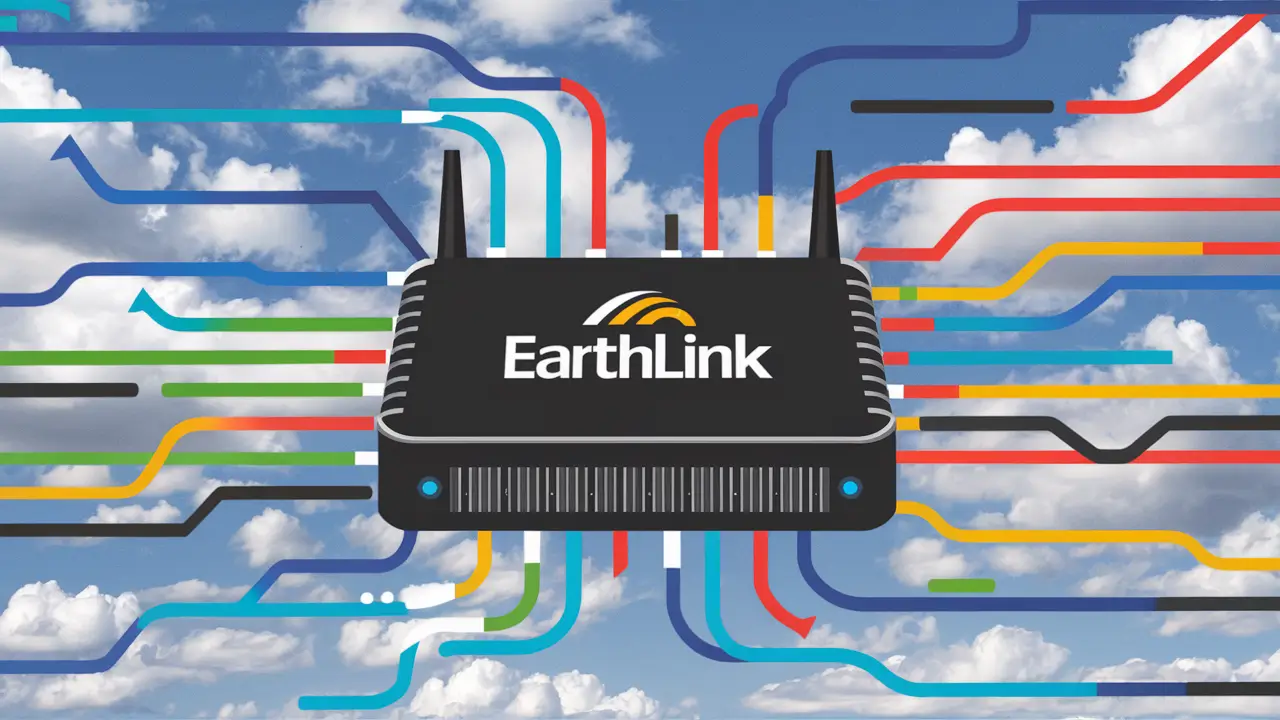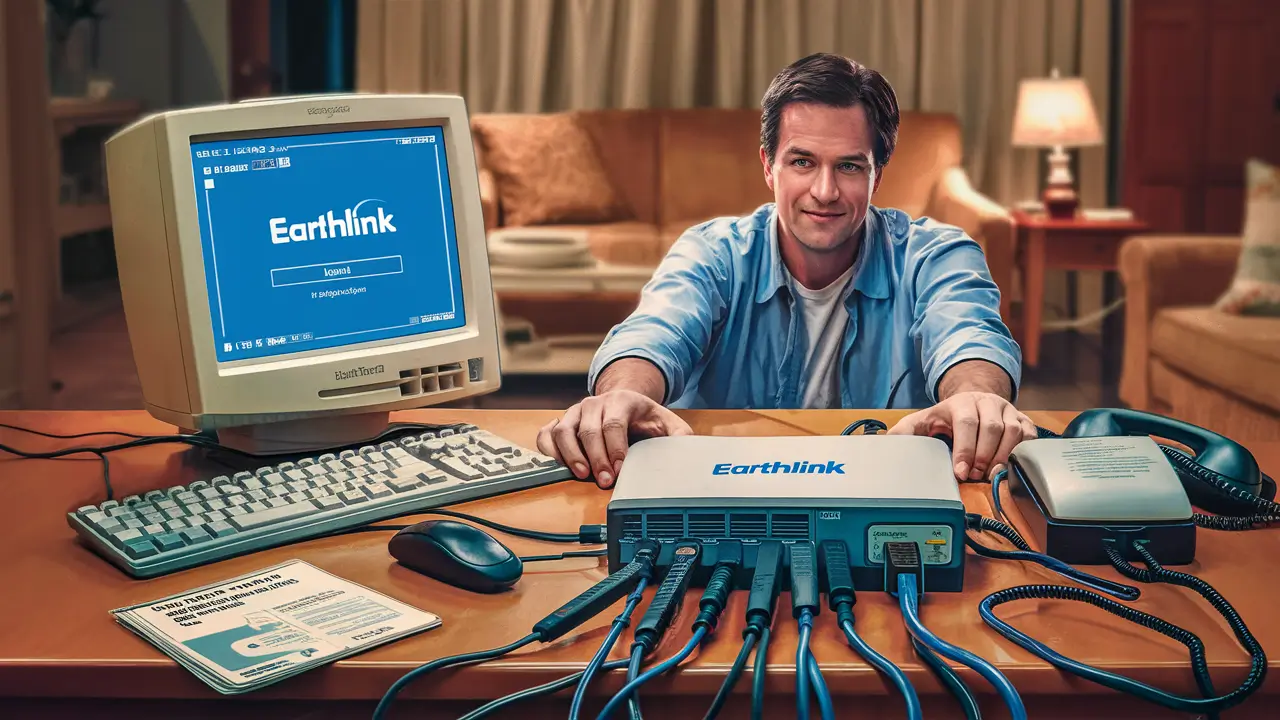What Are Earthlink Internet Prices?
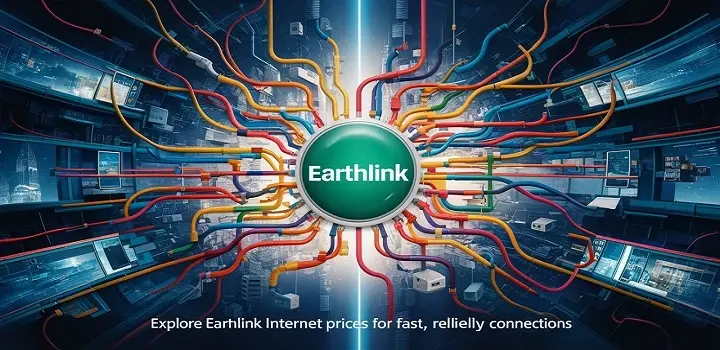
Discover EarthLink internet prices in 2025. This guide breaks down their plans, speeds, and costs, helping you find the best value. Learn about introductory offers, hidden fees, and how EarthLink compares to competitors to make an informed decision for your home or business internet needs.
Understanding EarthLink Internet Prices in 2025: A Comprehensive Guide
Navigating the world of internet service providers can often feel like deciphering a complex code. With a myriad of plans, speeds, and pricing structures, consumers are constantly seeking clarity. EarthLink, a long-standing player in the telecommunications industry, offers a range of internet solutions designed to meet diverse needs. As we move through 2025, understanding EarthLink's pricing becomes crucial for anyone looking to secure reliable and affordable internet access. This comprehensive guide aims to demystify EarthLink internet prices, providing you with the insights needed to make an informed decision. We'll delve into the various factors that influence cost, explore current plan offerings, and highlight how to get the best value for your money. In today's digitally driven world, internet connectivity is not a luxury but a necessity, powering everything from remote work and online education to entertainment and smart home devices. Therefore, choosing the right internet provider and plan at a competitive price is paramount. EarthLink's commitment to customer service and its diverse network infrastructure make it a compelling option for many households and businesses across the United States. This article will equip you with the knowledge to assess their offerings effectively, considering everything from introductory rates and potential fees to the actual value delivered in terms of speed and reliability. We'll also touch upon the evolving landscape of internet technology and how EarthLink is adapting to meet these changes in 2025, ensuring you have the most up-to-date information at your fingertips.
Decoding EarthLink's Internet Offerings
EarthLink's approach to internet service is characterized by its flexibility and its ability to cater to a wide spectrum of user requirements. Unlike some providers who focus solely on high-speed fiber optics, EarthLink often leverages a combination of technologies, including DSL, cable, and fixed wireless, to ensure broader availability. This multi-technology approach means that the specific type of internet service available at your address will significantly influence the plans and pricing you'll encounter.
Types of Internet Technologies Offered by EarthLink
Understanding the underlying technology is the first step in decoding EarthLink's offerings and their associated prices. As of 2025, EarthLink typically provides:
- DSL (Digital Subscriber Line): This technology uses existing telephone lines to transmit data. DSL is widely available, especially in areas where other high-speed options are limited. Speeds can vary significantly, from basic connectivity suitable for light browsing to more robust packages for streaming and moderate online activity. Prices for DSL plans are generally the most affordable within EarthLink's portfolio. For example, a basic DSL plan might offer speeds of up to 15 Mbps download and 1 Mbps upload, priced around $49.95 per month, though this can fluctuate based on promotions and location.
- Cable Internet: Utilizing coaxial cable lines, cable internet generally offers higher speeds than DSL. It's a popular choice for households with multiple users and devices, supporting activities like HD streaming, online gaming, and video conferencing. EarthLink's cable offerings in 2025 can range from plans providing 100 Mbps download speeds to those exceeding 500 Mbps. A mid-tier cable plan with speeds around 100-200 Mbps might be priced between $60-$75 per month, often with introductory discounts.
- Fiber Optic Internet: While not as universally available as DSL or cable, EarthLink is increasingly expanding its fiber optic network. Fiber offers the fastest and most reliable internet speeds, with symmetrical upload and download capabilities. These plans are ideal for power users, businesses, and households with very high bandwidth demands. Fiber plans from EarthLink in 2025 could start at speeds of 300 Mbps and go up to 1 Gbps (1000 Mbps) or even higher. Pricing for fiber can range from $70 per month for entry-level speeds to $100+ for gigabit connections, often accompanied by installation fees or equipment rental charges.
- Fixed Wireless Internet: This technology uses radio signals to connect to a base station, providing internet access in areas where traditional wired infrastructure is challenging. It's a viable option for rural or underserved locations. Speeds can vary, but many fixed wireless plans in 2025 aim to provide competitive performance, often comparable to mid-tier DSL or cable. Pricing for fixed wireless can be in the $50-$70 range, depending on the provider's specific deployment and the speeds offered.
Factors Influencing EarthLink Plan Pricing
Several key factors contribute to the final price of an EarthLink internet plan:
- Speed Tiers: The most significant determinant of price is the internet speed. Higher download and upload speeds naturally come with a higher monthly cost. EarthLink offers a spectrum of speeds, from basic plans suitable for single users to high-speed packages for demanding households.
- Data Caps: While many EarthLink plans offer unlimited data, some introductory or lower-tier plans might have data caps. Exceeding these limits can result in overage charges or reduced speeds, effectively increasing the overall cost if not managed carefully. It's crucial to verify data allowance policies.
- Contract Length: EarthLink, like many ISPs, may offer lower monthly rates for customers who commit to a longer contract term (e.g., 12 or 24 months). Month-to-month plans often come at a premium. In 2025, many providers are moving towards no-contract options, but it's always wise to check the terms.
- Promotional Pricing: New customers are often enticed by introductory offers that provide a discounted rate for the first 6, 12, or 24 months. It's vital to understand the price after the promotional period ends, as it will be higher. For instance, a plan advertised at $49.95/month might increase to $69.95/month after the first year.
- Equipment Rental Fees: EarthLink may charge a monthly fee for modem or router rentals. While purchasing your own compatible equipment can save money in the long run, it requires an initial investment and ensuring compatibility. These fees can add $10-$15 per month to your bill.
- Installation and Activation Fees: Some plans may include one-time charges for professional installation or service activation. These can range from $50 to $150 or more, though some promotions might waive these fees.
- Bundling Discounts: EarthLink sometimes offers discounts when internet service is bundled with other services, such as home phone or security solutions, if available in your area.
EarthLink Internet Pricing Landscape: 2025 Edition
As of 2025, EarthLink's pricing structure continues to reflect the diverse technological landscape and market competition. While exact prices can vary significantly by geographic location due to infrastructure availability and local market dynamics, we can outline general pricing trends and typical cost ranges for their services. It's important to note that these figures are estimates and should be verified by checking availability and specific offers for your address directly on the EarthLink website or by contacting their sales department.
Estimated Monthly Costs for EarthLink Plans (2025)
Here's a breakdown of typical monthly costs, keeping in mind that promotional pricing is common:
- Basic/Entry-Level Plans (DSL/Lower-Speed Cable): For users with minimal internet needs, such as occasional browsing and email, EarthLink often offers plans starting around $49.95 to $59.95 per month. These plans typically provide speeds ranging from 10 Mbps to 50 Mbps download. They are often the most budget-friendly options and may come with a contract.
- Mid-Tier Plans (Standard Cable/Faster DSL/Basic Fiber): Catering to the average household with multiple users and devices, these plans offer a balance of speed and cost. Expect speeds from 50 Mbps up to 300 Mbps download. The pricing for these plans in 2025 generally falls between $60.00 and $80.00 per month. These are often the most popular choices, offering good performance for streaming, gaming, and general internet use.
- High-Speed/Premium Plans (High-Speed Cable/Fiber Optic): For power users, gamers, streamers, and those working from home with significant bandwidth needs, EarthLink offers high-speed plans. These can include speeds from 300 Mbps up to 1 Gbps (1000 Mbps) or even higher, especially with fiber optic connections. The monthly cost for these premium services typically ranges from $75.00 to $100.00+ per month. These plans are essential for households with many connected devices and heavy data consumption.
Understanding Promotional Offers and Price Increases
A significant aspect of EarthLink's pricing strategy in 2025 involves introductory offers. Many plans are advertised with a promotional monthly rate for a set period, often 12 or 24 months. For example, a 300 Mbps cable plan might be advertised at $59.95/month for the first 12 months. However, it is crucial to be aware of the standard rate that applies after the promotional period expires. This standard rate could be $20-$40 higher per month. Consumers must factor this price increase into their long-term budget. Always ask for clarification on the pricing structure after the promotional period concludes.
Additional Fees to Consider
Beyond the monthly subscription fee, potential additional costs include:
- Equipment Rental: Modem/router rental fees can add approximately $10-$15 per month. Purchasing your own compatible equipment can save money over time, but ensure it meets EarthLink's specifications.
- Installation Fees: Professional installation can range from $50 to $150, although self-installation options might be available for some services, potentially reducing or eliminating this fee.
- Activation Fees: A one-time activation fee, typically between $30 and $90, may apply.
- Late Payment Fees: Standard fees apply for late payments.
- Early Termination Fees (ETFs): If you are on a contract and cancel service before the term ends, you could face significant ETFs, often prorated based on the remaining contract duration.
For instance, a seemingly affordable $50/month plan could end up costing closer to $70-$80 per month once equipment rental and potential installation fees are factored in. Always request a detailed breakdown of all potential charges before signing up.
How to Choose the Right EarthLink Plan: A Step-by-Step Approach
Selecting the most suitable EarthLink internet plan requires a methodical approach to ensure you get the best value for your specific needs and budget. With the variety of technologies and speed tiers available, it's easy to feel overwhelmed. Follow these steps to make an informed decision in 2025:
Step 1: Assess Your Internet Usage Habits
The first and most critical step is to understand how you and your household use the internet. Consider the following:
- Number of Users: How many people will be using the internet simultaneously? More users generally mean higher bandwidth requirements.
- Number of Devices: Count all internet-connected devices – smartphones, tablets, laptops, smart TVs, gaming consoles, smart home devices (thermostats, speakers, cameras). Each device consumes bandwidth.
- Primary Activities: What are your main online activities?
- Basic Use: Email, web browsing, social media. (Lower speeds, e.g., 10-50 Mbps, may suffice).
- Streaming: Watching Netflix, Hulu, YouTube in HD or 4K. (Requires higher speeds, 50-100 Mbps for HD, 100+ Mbps for 4K).
- Online Gaming: Playing multiplayer games online. (Requires stable, low-latency connections, with speeds of 50-100 Mbps recommended, though stability is key).
- Remote Work/Video Conferencing: Frequent video calls, large file uploads/downloads. (Requires good upload speeds and stable connections, 50-100 Mbps download and 10+ Mbps upload recommended).
- Smart Home Devices: Running multiple smart home devices. (Can add to overall bandwidth usage, especially if they stream video).
- Data Consumption: Do you frequently download large files or stream hours of 4K video? Check your current data usage if possible. Most EarthLink plans offer unlimited data, but it's good to be aware.
Step 2: Check Availability at Your Address
EarthLink's service offerings vary significantly by location. What's available in one neighborhood might not be in another. Use EarthLink's online tool or contact their sales team to enter your address and see which technologies (DSL, cable, fiber, fixed wireless) and specific plans are available to you. This step is crucial as it narrows down your options considerably.
Step 3: Compare Available Plans and Speeds
Once you know what's available, compare the plans side-by-side. Focus on:
- Advertised Speeds: Look at both download and upload speeds. For most users, download speed is more critical, but upload speed is important for video calls and uploading files.
- Monthly Price: Note the advertised price, but also inquire about the price after any promotional period ends.
- Contract Requirements: Is a contract required? What is the term length? What are the early termination fees?
- Data Caps: Confirm if the plan has unlimited data or if there are any restrictions.
- Equipment Fees: Factor in the cost of modem/router rental if you don't plan to use your own.
- Installation/Activation Fees: Understand any one-time setup costs.
Step 4: Look for Promotions and Discounts
EarthLink frequently runs promotions for new customers. These can include:
- Discounted introductory rates for the first 6, 12, or 24 months.
- Waived installation or activation fees.
- Bundling discounts if you also sign up for other EarthLink services.
Always ask a sales representative about any current deals or promotions you might be eligible for. Be sure to get the details of the promotion in writing.
Step 5: Consider Long-Term Value and Customer Service
While price is a major factor, consider the overall value. A slightly more expensive plan with significantly better speeds and reliability might be a better long-term investment. Also, research EarthLink's reputation for customer service and technical support. A plan that is cheap but comes with constant technical issues and poor support can be more costly in the long run due to frustration and lost productivity.
Step 6: Read the Fine Print
Before signing any agreement, carefully read the contract terms and conditions. Pay close attention to:
- Price increases after the promotional period.
- Data usage policies.
- Early termination fees.
- Equipment return policies.
If anything is unclear, ask for clarification before committing. Getting everything in writing is always recommended.
EarthLink vs. The Competition: A Pricing and Value Comparison
In the competitive landscape of internet service providers in 2025, EarthLink holds a distinct position. While it may not always be the cheapest option, its value proposition often lies in its broader availability across different technologies and its focus on customer service. To truly understand EarthLink's pricing, it's essential to compare it against major competitors like Xfinity (Comcast), Spectrum (Charter), AT&T, and Verizon, considering similar speed tiers and service types.
| Feature | EarthLink (Estimated 2025) | Major Competitor A (e.g., Xfinity/Spectrum Cable) | Major Competitor B (e.g., AT&T/Verizon Fiber) |
|---|---|---|---|
| Availability | Widespread (DSL, Cable, Fixed Wireless, some Fiber) | Widespread (Cable, some Fiber) | Varies (Primarily Fiber, some DSL) |
| Entry-Level Plan (Approx. 50-100 Mbps) | $50-$65/mo (Promotional) | $45-$60/mo (Promotional) | $55-$70/mo (Promotional) |
| Mid-Tier Plan (Approx. 200-500 Mbps) | $65-$80/mo (Promotional) | $60-$75/mo (Promotional) | $70-$90/mo (Promotional) |
| High-Speed Plan (Approx. 1 Gbps Fiber) | $75-$100+/mo (Promotional) | $80-$100+/mo (Promotional) | $70-$90/mo (Promotional) |
| Contract Requirement | Often optional, but contracts may offer lower rates. | Often requires 1-2 year contract for best pricing. | Increasingly no-contract, but some plans may have them. |
| Data Caps | Generally unlimited on cable/fiber, check DSL. | Typically unlimited on cable/fiber. | Typically unlimited on fiber. |
| Equipment Fees | ~$10-$15/mo rental. | ~$10-$15/mo rental. | Often included or lower rental fees for fiber. |
| Installation Fees | ~$50-$150, sometimes waived. | ~$50-$100, sometimes waived. | ~$50-$100, sometimes waived. |
| Customer Service Reputation | Generally considered good to very good. | Mixed reviews, often criticized for long wait times. | Generally good, especially for fiber issues. |
Key Comparison Points
Pricing: EarthLink's pricing is often competitive, especially in areas where it offers cable or DSL. Its fiber offerings are also priced competitively, sometimes offering better value than traditional cable giants for similar speeds. However, the absolute cheapest advertised rates might come from cable providers during aggressive promotional periods. The true cost needs to be calculated considering the price after promotions, equipment fees, and contract terms.
Availability: EarthLink's strength lies in its diverse technology portfolio, making it a viable option in more locations than providers exclusively offering fiber. If fiber isn't available at your address, EarthLink's cable or even fixed wireless options might be superior to the limited DSL offerings from other major players.
Value: Value is subjective. If you need the absolute fastest speeds and fiber is available, AT&T or Verizon might offer comparable or slightly better pricing for gigabit speeds. However, if you're in an area with limited high-speed options, EarthLink's cable or fixed wireless plans might provide the best available value. EarthLink often emphasizes its customer service, which can add significant value for users who prioritize reliable support.
Contract Flexibility: EarthLink often provides more flexibility with contract terms compared to some major cable providers. While contracts might offer lower prices, the absence of a mandatory long-term commitment can be a significant advantage for many consumers, reducing the risk of high early termination fees.
In summary, while EarthLink might not always win on the lowest advertised price, its combination of availability, competitive pricing across various technologies, and often strong customer service makes it a solid contender. A direct comparison for your specific address is always the most effective way to determine the best provider and plan.
Maximizing Your EarthLink Investment: Best Practices
Getting the best value from your EarthLink internet service involves more than just picking a plan. By adopting smart practices, you can ensure you're not overpaying and that your service meets your needs efficiently. Here are some best practices for maximizing your EarthLink investment in 2025:
1. Understand Your Actual Speed Needs
As detailed earlier, accurately assessing your household's internet usage is paramount. Don't pay for speeds you don't need. If your primary activities are browsing and email, a 100 Mbps plan might be more than sufficient, saving you money compared to a gigabit plan. Conversely, if you have a large family with multiple streaming devices and gamers, investing in a higher-speed plan upfront can prevent future frustration and the need for costly upgrades.
2. Leverage Promotions Wisely, But Plan for Price Increases
Introductory offers are a great way to save money initially. However, always budget for the price increase that will occur after the promotional period ends. Mark your calendar a few months before the promotion expires to review your plan and options. You might be able to negotiate a new promotional rate, switch to a different plan, or consider other providers to avoid paying the higher standard rate.
3. Consider Purchasing Your Own Equipment
EarthLink's modem and router rental fees can add up to $120-$180 per year. Purchasing your own compatible modem and router can be a significant cost-saver over the lifespan of the equipment. Before buying, ensure the equipment is compatible with EarthLink's network and meets the speed requirements of your chosen plan. Check EarthLink's website or customer support for a list of approved devices. A good quality modem/router combo can often be purchased for $100-$200, paying for itself within 1-2 years.
4. Optimize Your Wi-Fi Network
Even with a high-speed plan, a poorly configured Wi-Fi network can lead to slow speeds and connectivity issues. Ensure your router is placed in a central, open location, away from obstructions and potential sources of interference (like microwaves or thick walls). For larger homes, consider a mesh Wi-Fi system to ensure consistent coverage throughout the house. Regularly rebooting your modem and router can also resolve minor connectivity glitches.
5. Monitor Your Data Usage (If Applicable)
While most EarthLink cable and fiber plans offer unlimited data, some DSL or fixed wireless plans might have data caps. If your plan has a data cap, regularly monitor your usage through EarthLink's online portal or app to avoid costly overage charges or speed throttling. Adjust your usage habits or consider upgrading your plan if you consistently approach your data limit.
6. Negotiate and Re-evaluate Periodically
Don't be afraid to contact EarthLink customer service periodically, especially when your promotional period is ending or if you see better offers from competitors. Many providers are willing to negotiate to retain customers. Be polite but firm, mention competitor offers if applicable, and inquire about any loyalty discounts or new promotions available. Re-evaluating your plan annually ensures you're still getting the best value for your money.
7. Understand Service Level Agreements (SLAs) for Business Plans
For business customers, EarthLink often offers dedicated business plans with Service Level Agreements (SLAs) that guarantee uptime and performance metrics. While these plans are typically more expensive, they provide a higher level of reliability and support crucial for business operations. Understanding the specifics of the SLA, including response times and compensation for downtime, is key to maximizing this investment.
Advanced Considerations for EarthLink Subscribers
Beyond the basic pricing and plan selection, several advanced considerations can impact your experience and the true cost of EarthLink internet service in 2025. These often involve understanding the nuances of network performance, contractual obligations, and potential future needs.
Understanding Latency and Jitter
While speed (bandwidth) is often the primary focus, latency and jitter are critical for real-time applications like online gaming, video conferencing, and VoIP calls. Latency refers to the delay in data transmission, while jitter is the variation in that delay. DSL and some fixed wireless connections can sometimes exhibit higher latency and jitter compared to cable or fiber. If these applications are vital for you, pay close attention to network performance metrics beyond just download/upload speeds when choosing a plan, especially if comparing DSL to cable or fiber.
The Impact of Network Congestion
Cable internet, while offering high speeds, operates on a shared network. This means that during peak usage times (evenings, weekends), speeds can sometimes decrease due to network congestion in your neighborhood. Fiber optic internet, on the other hand, typically provides more consistent speeds regardless of network load because each connection is more dedicated. EarthLink's DSL and fixed wireless technologies have different congestion characteristics. Understanding these differences can help manage expectations regarding performance, especially during peak hours.
Evaluating Early Termination Fees (ETFs)
If you opt for a contract plan to secure a lower monthly rate, carefully examine the Early Termination Fee (ETF) policy. ETFs are often prorated based on the remaining months of your contract. For example, a $15 per month ETF for 24 months means a $360 potential ETF. If you anticipate moving or might switch providers within the contract term, the potential cost of the ETF could negate any savings from the lower monthly rate. No-contract plans, while potentially slightly more expensive monthly, offer greater flexibility and avoid ETFs.
Bundling Services: Pros and Cons
EarthLink may offer bundles including internet, home phone, or security services. While bundling can sometimes lead to discounts, it's essential to evaluate if you truly need all the bundled services. Sometimes, the savings from a bundle are minimal, and managing separate services from different providers might offer better value or more flexibility. Calculate the cost of each service individually versus the bundled price to ensure you're getting a genuine discount.
Future-Proofing Your Internet Plan
Consider your future needs. As technology evolves, so does our reliance on high-speed internet. Devices are becoming smarter, streaming quality is increasing (4K, 8K), and remote work is becoming more ingrained. If your budget allows, selecting a plan with slightly more speed than you currently need might "future-proof" your connection, saving you the hassle and potential cost of an upgrade in the near future. For example, if 300 Mbps is sufficient now, but 500 Mbps or 1 Gbps is only slightly more expensive, it might be a worthwhile investment.
Understanding Service Level Agreements (SLAs) for Business Plans
For business customers, EarthLink often offers dedicated business plans with Service Level Agreements (SLAs) that guarantee uptime and performance metrics. While these plans are typically more expensive, they provide a higher level of reliability and support crucial for business operations. Understanding the specifics of the SLA, including response times and compensation for downtime, is key to maximizing this investment.
Common Questions About EarthLink Pricing
Here are some frequently asked questions regarding EarthLink internet prices in 2025:
Q1: Are EarthLink's advertised prices the final monthly cost?
No, advertised prices are often promotional and do not include potential fees such as equipment rental, installation, activation, taxes, or surcharges. Always ask for a complete breakdown of all charges before signing up.
Q2: How much does EarthLink internet cost after the promotion ends?
The price increase after a promotion can vary significantly, typically ranging from $20 to $40 or more per month. It's crucial to confirm the standard rate for your chosen plan when signing up.
Q3: Does EarthLink charge for modem rental?
Yes, EarthLink typically charges a monthly fee for modem and router rentals, usually around $10-$15. Purchasing your own compatible equipment can save money in the long run.
Q4: Are there installation fees with EarthLink?
Installation fees can range from $50 to $150, depending on the service type and whether professional installation is required. Promotions sometimes waive these fees.
Q5: Does EarthLink offer no-contract internet plans?
Yes, EarthLink often provides options for no-contract plans, although these might sometimes come at a slightly higher monthly rate compared to contract plans. This offers greater flexibility for customers.
Q6: Is EarthLink cheaper than other major providers?
EarthLink's pricing is competitive, but not always the cheapest. Its value proposition often lies in its broader availability across different technologies and its customer service reputation. Direct comparison for your specific address is the best way to determine affordability.
Q7: What speeds does EarthLink offer?
EarthLink offers a range of speeds depending on the technology available at your location, typically from basic DSL speeds (e.g., 10-50 Mbps) up to high-speed cable (e.g., 500+ Mbps) and fiber optic speeds (e.g., 1 Gbps or higher).
Conclusion
Understanding EarthLink internet prices in 2025 requires a detailed look at their diverse offerings, pricing structures, and the factors that influence the final cost. EarthLink provides a spectrum of internet technologies, including DSL, cable, fiber, and fixed wireless, each with its own pricing tiers and performance characteristics. While entry-level DSL plans might start around $49.95 per month, mid-tier cable and fiber plans generally range from $60 to $100+, with high-speed gigabit options potentially exceeding this.
A critical aspect of EarthLink's pricing is the prevalence of promotional offers. These initial discounts can make plans appear more affordable, but it's imperative to be aware of the standard rate that applies after the promotional period concludes, which is often significantly higher. Additionally, consumers must factor in potential costs such as equipment rental fees (typically $10-$15/month), installation charges ($50-$150), and activation fees. The decision to purchase your own compatible modem and router can lead to substantial long-term savings, offsetting these recurring expenses.
To make the most informed choice, it's essential to first assess your household's internet usage habits – the number of users, devices, and primary online activities. Subsequently, verify EarthLink's service availability at your specific address, as this will dictate the technologies and plans accessible to you. Compare these available plans based on speed, data allowances, contract terms, and all associated fees. While EarthLink may not always boast the absolute lowest advertised price compared to some competitors, its broader availability, competitive pricing across various technologies, and often commendable customer service present a strong value proposition, especially in areas with limited high-speed options.
Best practices for maximizing your investment include understanding your true speed needs, budgeting for post-promotion price increases, considering purchasing your own equipment, optimizing your Wi-Fi network, and periodically re-evaluating your plan or negotiating with customer service. Advanced considerations like latency, jitter, network congestion, and early termination fees are also vital for a comprehensive understanding of the service's true cost and performance. By following a structured approach and carefully reviewing all terms and conditions, you can confidently select an EarthLink internet plan that balances performance, reliability, and affordability for your specific needs in 2025 and beyond.
